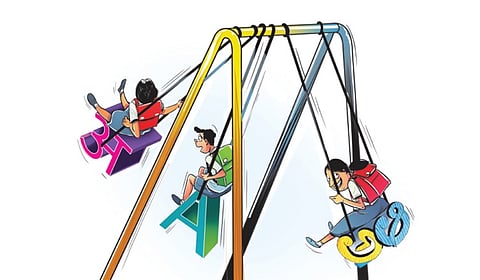

BENGALURU: The People’s Alliance for Fundamental Right to Education (PAFRE) has strongly opposed the central government’s push for the three-language formula in schools, arguing that it undermines children’s mother tongue and hampers creative learning. The organisation called for a shift to a multi-lingual education policy that respects linguistic diversity and ensures quality learning for students across states.
In a statement, PAFRE highlighted that the three-language policy has faced resistance in several southern states due to its impracticality. Even in states where it has been implemented, various issues persist, particularly in North India, where exposure to southern languages remains rare. Government and private schools in the north seldom offer South Indian languages or even other regional languages like Kashmiri, Punjabi, Assamese, Bengali, or Odia as a third language, the group noted.
“Tamil Nadu, which follows a bilingual policy, has shown that an alternative approach can be effective,” the group said and emphasised that language learning should not be limited to a medium of instruction but should be seen as a fundamental tool for children to think, express, and explore their surroundings. Despite the National Curriculum Framework 2005 recognising this, the organisation pointed out that language policies continue to be misguided.
The group criticised the three-language formula for assuming that South Indian students would be willing to learn Hindi without considering its benefits for them. It also noted that the policy largely ignored the Northeast.
The lack of South Indian language teachers in North Indian schools—despite the presence of Hindi teachers in South India—was cited as a failure of the system. Furthermore, PAFRE condemned the practice of treating Sanskrit as a third language merely for scoring marks, calling it a distortion of the original intent.
PAFRE argued that North Indian states have not followed the three-language model in the same way as South India. The preference for English, coupled with a rapid shift to English-medium education from Class 1 without adequate training or materials, has worsened the quality of education across states, including Karnataka. This, the group warned, has left language learning incomplete and weakened overall education standards.
Advocating for a comprehensive multilingual approach, PAFRE urged policymakers to recognise India’s linguistic diversity and develop an inclusive language formula. It cited international examples where multi-lingual education promotes pluralism and multi-culturalism, stressing that India needs a similar model focused on children’s learning and creativity.